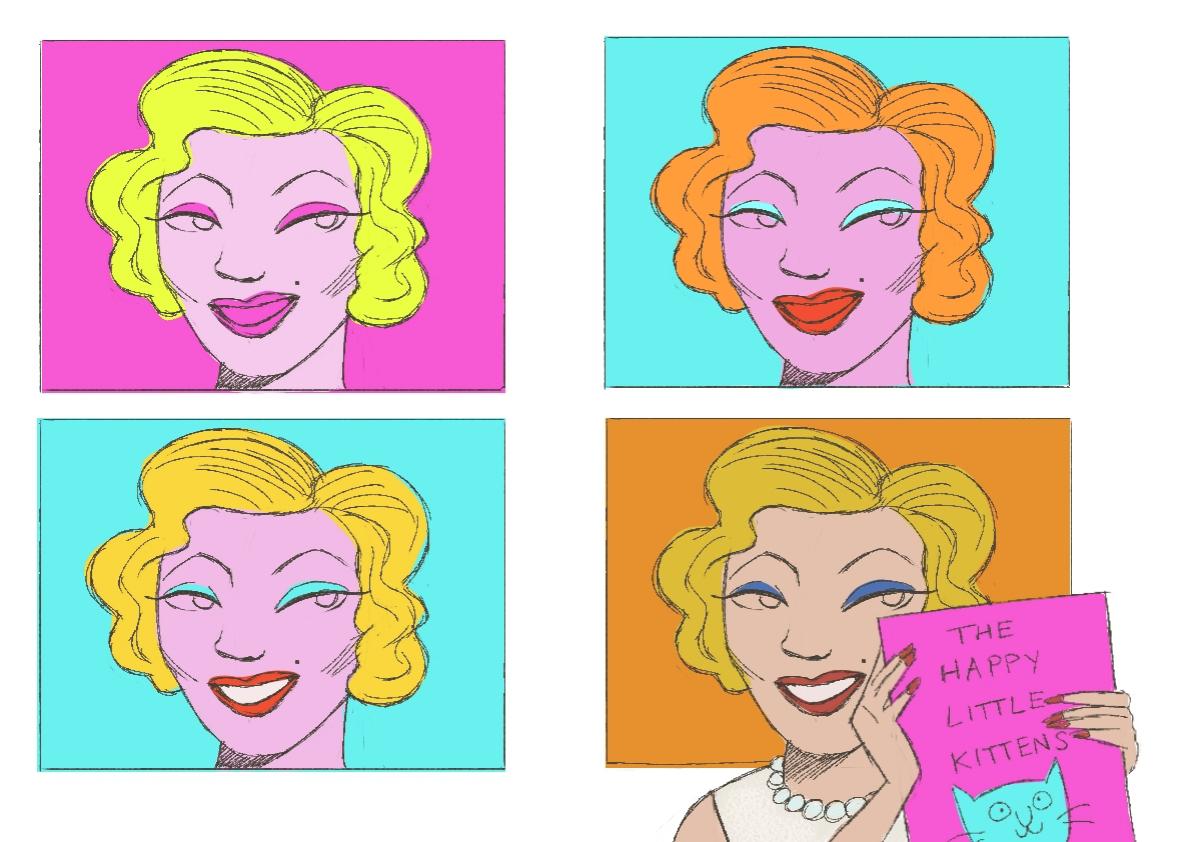If there’s one thing celebrities love to do, besides buy oceanfront property, it is write picture books. Jamie Lee Curtis alone has penned eleven of them. Julianne Moore has cranked out a slew of best-sellers about a spunky redhead named Freckleface Strawberry. If you happen to be a parent to a child on the cusp of literacy, perhaps you’ve been personally seduced by the appealing floral trim around Madonna’s byline on The English Roses: Friends for Life!, or the big-eyed baby jaguar on the cover of LeAnn Rimes’ Jag, or the slapsticky adventures of Max the mutt in Joy Behar’s Sheetzu Caca Poopoo. Amazon is lousy with candy-colored artifacts written by royalty ranging from Sarah Ferguson, Duchess of York to Queen Latifah.
Now that I’ve plowed through a heap of these—the very intense poem about fatherhood by Will Smith, the ode to sisters by Brooke Shields, the doozy Estefan penned about a kindhearted bulldog—I can report that many of them are indeed bad. But to the dedicated student of celebrity arcana, these books have more to offer than their scattershot quality suggests. Despite their varied themes and the range of temperaments that animate them, they are most interesting when viewed through one particular lens: as a weird little reflection of a public person’s inner life, part whimsy, part memoir, part ego.
Take Jay Leno’s 2004 opus If Roast Beef Could Fly, about the time young Leno messed up his dad’s barbecue party and learned a valuable lesson. (The lesson is best approximated as “it’s OK for kids to make mistakes,” or more accurately “sometimes your dad will get mad at you, but then he’ll get unmad and it’ll all be a fun memory.”) This book reads like Leno’s approximation of what a 7-year-old would deliver at open-mic night: “The great thing about working with my dad is he loves taking things apart. He just doesn’t get around to putting them back together!” But there’s also a sweetness to the relationship between the Lenos, with their ’60s sitcom banter (“Come on, son! Let’s go to the Hardware Supermax store!”) and their matching jumbo chins. Above all, writing a children’s book turns out to be a great tonal fit for Leno-ism. It’s hard to imagine a more apt vehicle for his try-hard geniality and cloudless self-love. Reading If Roast Beef Could Fly, you can almost believe that the Leno of Late Night was a figment, a crowd-tested robot in a suit, and that this—the grinning wag sketched in primary colors at his dad’s knee—is the real Leno, free to be as corny as he wants without the faux edginess and ingratiating schmooze of late-night TV.
All these books feel like heady distillations of the big personalities behind them. One of the most charming features of celebrity kids’ books is how clear it seems, reading them, that no editor buffed the prose before it reached our eyes; it all feels quite unfiltered. There’s the perfect vacuousness of Bethenny Frankel’s Cookie Meets Peanut, a love story between a woman and her dog (and, tangentially, a new baby) that contains sentences like “Cookie and mommy go on walksies” and “They window shop at Bark Jacobs.” And there’s John Travolta’s Propeller One-Way Night Coach, about an 8-year-old boy named Jeff who dreams of flying in an airplane. This one’s a heartbreaker. Travolta loves planes. He really loves them. He claims in the jacket copy that he first invented the tale of Jeff to entertain himself on an overnight layover. His prose is a bonanza of dangling modifiers and adjective strings hopped up on aeronautical amour: “Noble in appearance, strong and powerful in impression, this would be an experience,” Jeff says before his first flight. Here is Jeff beholding an aircraft: “She was beautiful! Silver and white, with a blue stripe down the side with a red accent stripe and the letters UNITED printed on the side. Oh what a sight!”
Jeff loves planes for their quotidian marvels, like free Cokes and kind flight attendants, but also for their magical self-containment. When Jeff wonders, “Why don’t people just live in airplanes,” you may find your sympathies drifting toward Travolta: a star who has been for decades too famous to fly commercial, a sex symbol who reconfigured his face and became a laughingstock. The book’s triumphant conclusion, when grown-up Jeff becomes a pilot, marries a flight attendant, and gets to live in planes forever, sure feels like a kind of wish fulfillment for poor, unmoored Travolta himself.
Obviously this pathos is projection. Propeller has all the emotional complexity of fuselage. But for grown-up readers, the minor joy to be found in these books lies in exactly such fly-by psychoanalysis. There is something at once creepy and a little bit touching about seeing famous people try to throw their voice into the perspective of a child. Madonna’s book about a group of aristocratic teenage BFFs strenuously tries to broadcast “edgy and cool but in an age-appropriate way,” as the girls gush about shopping sprees and crushes. (“Brent Robertson is the cutest boy in school.”) Ray Romano’s tale of growing up with two brothers is a likable, gross portrait of little-boy machismo, with noogies, wedgies, and other fun brother things, including a fart visualized as a putrid green wisp emanating from a young Romano’s butt. If you squint at these books, they can almost feel like a refreshing break in the standard Hollywood PR game. There are no causes promoted here, no oily talk show patter—only stars trying to access whatever guilelessness and sweetness they still have at their disposal just to convince you to read their books to your kids.
Nightlight is Slate’s pop-up blog about children’s books, running for the month of August. Read about it here.
